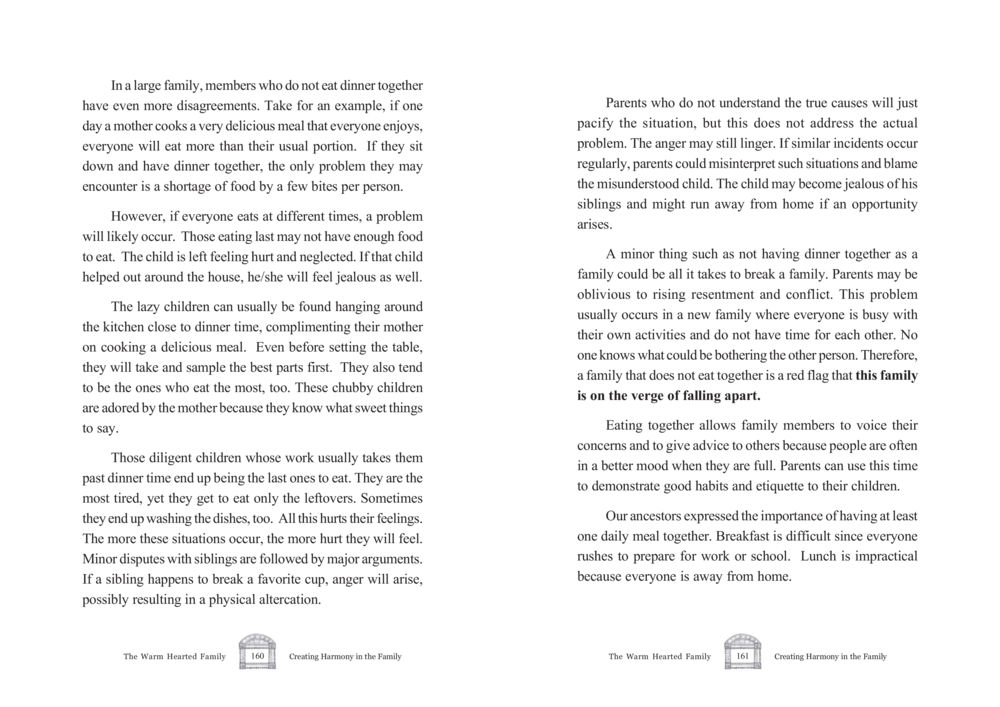The Impact of Family Dining Dynamics : หน้า 81/207
The Warm Hearted Family : หน้า 81/207 Explore how family dining habits influence relationships among members, revealing emotional conflicts arising from mealtime dynamics.
0 ครั้ง

สรุปเนื้อหา
In large families, not dining together often leads to increased disagreements. For instance, if a mother prepares a delicious meal, those eating together may only face minor food shortages. However, separate dining times can leave some family members feeling neglected or hurt, especially children. The ones who eat first often receive more food and attention, while diligent children who arrive late face leftovers and additional chores, which can lead to feelings of resentment and jealousy. Such emotions may trigger minor sibling disputes that escalate into major arguments, including physical altercations if tensions run high. This highlights the importance of shared mealtime experiences in fostering family harmony, as regular interactions can mitigate emotional conflicts.
หัวข้อประเด็น
-family relationships
-mealtime dynamics
-sibling rivalry
-emotional well-being
-fairness in family interactions
ข้อความต้นฉบับในหน้า
หน้าหนังสือทั้งหมด















































































































































































































